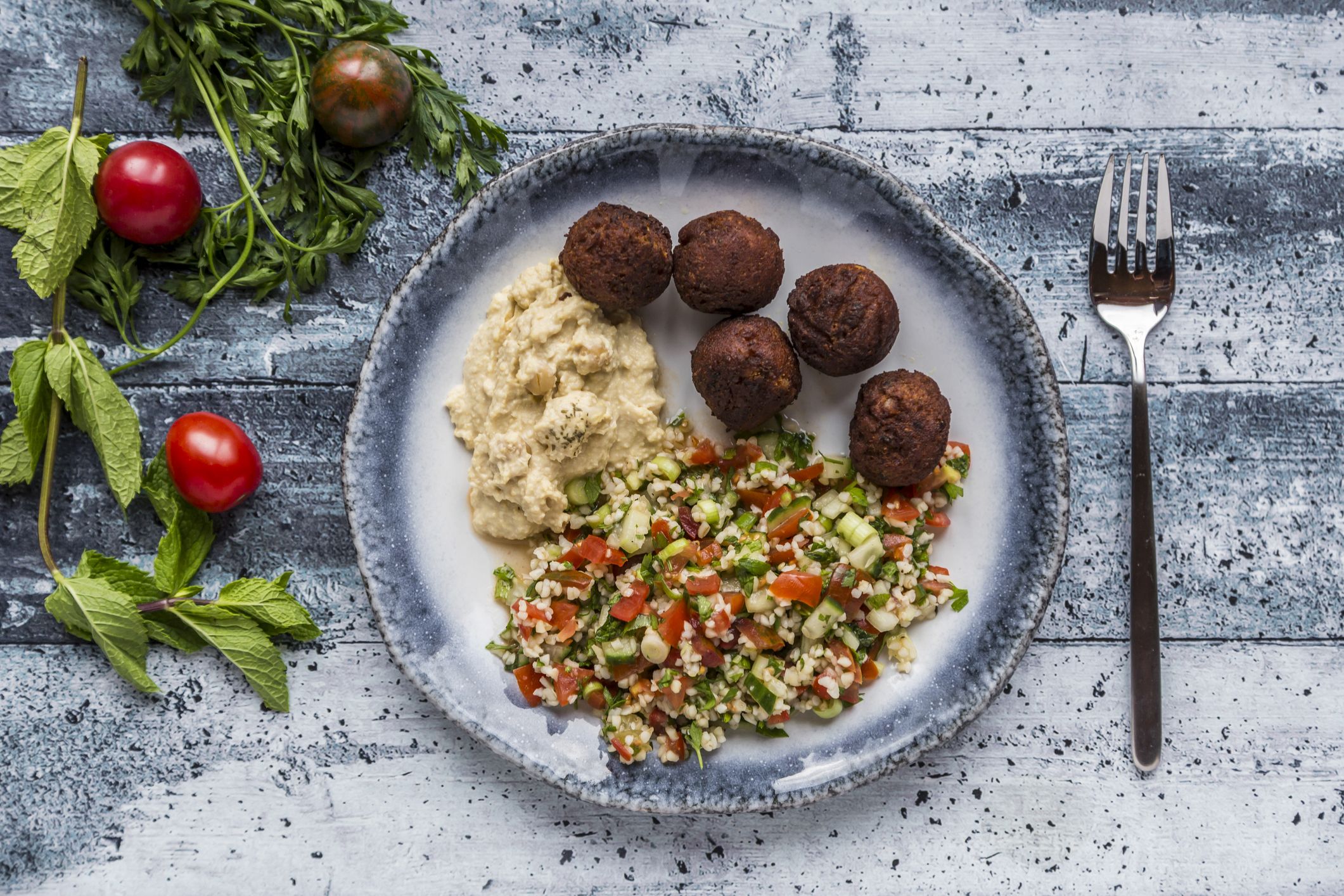It’s hard to keep score on which oils deserve a spot in your pantry. There’s so many to choose from: Olive oil, coconut oil, even avocado oil! Two players that you probably see on the reg, though, are canola oil and vegetable oil.
Sure, both these varieties are plant-based, and therefore totally vegan-friendly options for baking, sautéing, and more.
But what happens when you put these two popular oils head to head?
What’s the difference between canola oil and vegetable oil?
Canola oil is actually a type of vegetable oil that comes from the rapeseed or canola plant, according to Marisa Moore, RDN.
Whereas, when you see “vegetable oil” on a label at the supermarket, what’s in the bottle can vary. You may find a blend of different types of vegetable oils, like sunflower oil, corn oil, and olive oil—in fact, there could even be some canola oil. But, more often than not, it’s mainly composed of soybean oil.
When should you use each oil?
Canola has a neutral flavor and can be used in most cooking and baking applications, according to Moore. It’s especially great for sweet stuff like pancakes and muffins, says Kelli McGrane, RD for Lose It. Canola oil also makes a great addition to grilling, sautéing, or stir-frying since it has a particularly high smoke point (the temperature at which oil begins to break down and emit toxic fumes). If you’re turning up the heat, canola oil is a safe bet.
Vegetable oil’s neutral taste also makes it a great candidate “when you don’t want to add flavor from the oil” to a dish, according to McGrane. Think: roasted veggies and pan-fried potatoes. Depending on the blend of vegetable oil, it may not fair as well in high heat, though, so it’s best at room temperature, drizzled onto salads.
Okay, but which one is healthier?
For starters, here’s how these two oils break down nutritionally:
Canola oil nutrition
- Calories per tbsp: 124
- Fat: 14 g
- Saturated Fat: 1 g
- Carbohydrates: 0 g
- Fiber: 0 g
- Sugar: 0 g
- Protein: 0 g
- Sodium: 0 g
Vegetable oil nutrition
- Calories per tbsp: 117
- Fat: 13.6 g
- Saturated Fat: 11 g
- Carbohydrates: 0 g
- Fiber: 0 g
- Sugar: 0 g
- Protein: 0 g
- Sodium: 0 g
At first glance, you may not that their nutrition info looks very similar. However, Moore says canola oil is higher in monounsaturated fats and omega-3s than standard vegetable oil, which are linked to a host of benefits including cancer prevention and cognitive development, according to National Institutes of Health. (That said, if your diet allows it, fish oils and other marine sources like micro-algae are the most potent food sources of omega-3s.)
And while a vegetable oil blend can vary, as you can see in the nutrition facts, it tends to contains significantly more saturated fat than canola. And, in high doses, this type of fat has been associated with cardiovascular disease, according to the British Journal of Medicine.
Plus, many vegetable oils found in commercial goods are hydrogenated to extend shelf life, and contain harmful trans fats. Furthermore, vegetable oils are typically high in omega-6s which, if consumed in excess, may increase your risk of cancer and autoimmune disease, according to the journal Biomedical Pharmacotherapy.
Since canola oil is lower in saturated fats, and tends to be higher in monounsaturated fat than most other vegetable oils, McGrane says it’s a more reliably healthy option.
Read the label before you buy any oil.
Regardless of the oil you choose, first look at the nutrition label. “Choose ones that have less than four grams of saturated fat per tablespoon,” says McGrane.
And if you’re going for vegetable oil, “check the ingredients list and steer clear of bottles containing partially hydrogenated oils,” she says. “When buying a vegetable blend, look for canola, safflower, sunflower and soybean oils, which are lower in saturated fat.” And avoid any blends that contain palm or palm kernel oil.
McCrane also adds that the healthiest varieties of vegetable oils are extra-virgin olive and avocado oils, so opt for those whenever you can.
Source: Read Full Article



